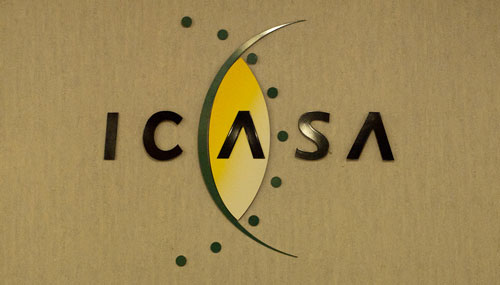
The Independent Communications Authority of SA (Icasa) has taken exception to a column penned by TechCentral senior journalist Craig Wilson in which he criticises the regulatory body for barring TopTV from launching adult channels on its satellite pay-TV platform. The authority has asked for a right of reply, which is published in full below.
Craig Wilson’s opinion piece (“How Icasa has failed us“), in which he reflects on Icasa’s decision to refuse TopTV’s application for authorisation to broadcast three additional channels that will carry adult content is so extreme in its attack on Icasa that it warrants a response.
The underlying thrust of Wilson’s argument is that freedom of expression trumps all other rights in the constitution. What Icasa stated in its reasons for refusing TopTV’s application was that the rights of women to human dignity and equality need to be taken into account in making the decision.
Wilson does not seriously engage with this dimension of Icasa’s reasons, preferring to argue that Icasa is “protecting” women from pornography, when what Icasa was looking at is limiting the normalisation of violence against women in SA.
Icasa argued in its reasons that “consumption of pornography may, on its own, be neither necessary nor sufficient for violent sexual crime (or for sexist attitudes and behaviour more generally); yet it might still contribute to violent sexual crime if it validates social norms of sexual abuse”. It is telling that [trade union federation] Cosatu sent an open letter to Collin Matjila, CEO of Kopano ke Matla Investment Company, which is a shareholder in TopTV, that included the following statement:
Cosatu is totally opposed to such channels, which we believe will exploit and demean women and girls, reinforce sexist attitudes and encourage the abuse of women, which is already a massive problem.
So, Icasa’s decision is not some irrational view “couched in emotionally exploitative and flimsy rhetoric” as Wilson avers. It is shared by the largest trade union federation in the country.
Icasa did not base its refusal on a moral argument, nor did the religious groups who objected to TopTV’s application. Wilson falls into same trap that TopTV did in its response to stakeholders — assuming that their objections were based on moral or religious arguments, when in fact they were based on the rights of women and children within the framework of the constitution’s Bill of Rights, jurisprudence from the courts and international human rights instruments on the rights of women.
Since Icasa is an administrative body governed by laws such as the Promotion of Administrative Justice Act, the authority decided to subject TopTV’s application to a public consultation. However, Wilson failed to mention that one of the reasons for refusing TopTV’s application is that the company did not take Icasa’s public consultation process seriously and neither did it come to the public hearings to expand on its application and take questions from the authority and the public or to rebut stakeholder views opposed to its application.
Icasa is required to make decisions in the public interest and it is damaging to a licensee’s case if they fail to engage with the views of the public in a public hearing.
So, it is simply not good enough for Wilson to lambast Icasa’s decision as failing “us”. That is an excessive claim to make when there are others who assert the rights of women in this instance. Our constitution does not only assert the liberal freedoms of civil and political rights but it is also progressive in its assertion of social rights when it addresses equality and human dignity.
Freedom of expression is not the only right in the constitution. Unfortunately, many journalists seem to think that it is. — Issued by Icasa’s communications department
- Subscribe to our free daily newsletter
- Follow us on Twitter or on Google+ or on Facebook
- Visit our sister website, SportsCentral (still in beta)




